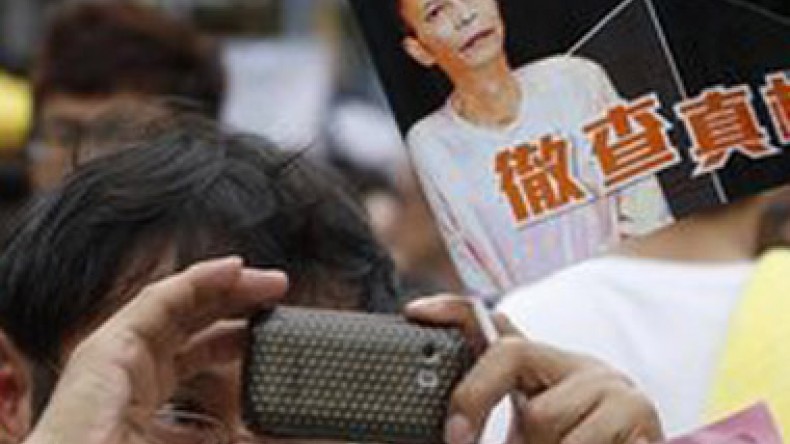
China dissident Li Wangyang 'committed suicide'
Police in China's Hunan province says that a second investigation into the death of leading dissident Li Wangyang shows that he committed suicide, BBC reported.
The conclusion was made in consultation with forensic experts and experienced investigators, authorities said.
Li was found dead in his hospital room in the central Chinese city of Shaoyang on 6 June.
His suspicious death caused an uproar in Hong Kong, with thousands marching to demand that Beijing investigate.
The finding was reported by Beijing-backed Hong Kong China News Agency.
Following that, the Hong Kong government released a statement saying it would not ''make any further comment.”
"We understand the concerns expressed by the people of Hong Kong on the Li Wangyang incident, and have conveyed the public's concerns and opinions to the Central Government and relevant Mainland authorities,'' the statement said.
''The HKSAR Government will continue to safeguard the freedom of speech and people's right to express their views."
Li spent more than 22 years in jail after taking part in the Tiananmen Square protests of 1989, and his death has sparked protests in Hong Kong.
Following his death, just days after he vowed to press ahead the fight for universal suffrage, a senior Hong Kong official said he doubted the nearly deaf and blind activist could hang himself.
Li was freed from jail about a year ago, but had reportedly been put back under round-the-clock police watch after restating his commitment to pro-democracy reform in media interviews.
He was found by relatives in a hospital where he was being treated for heart disease and diabetes, with his neck tied in a white cloth hung from the bar running along the top of the window, his feet still touching the ground, reports said.
Officials said he had committed suicide while under police guard.
But friends were quoted suggesting that the suicide seemed to be staged and accusing authorities of rushing to cremate Li's body following an autopsy.
Newsfeed
Videos






























